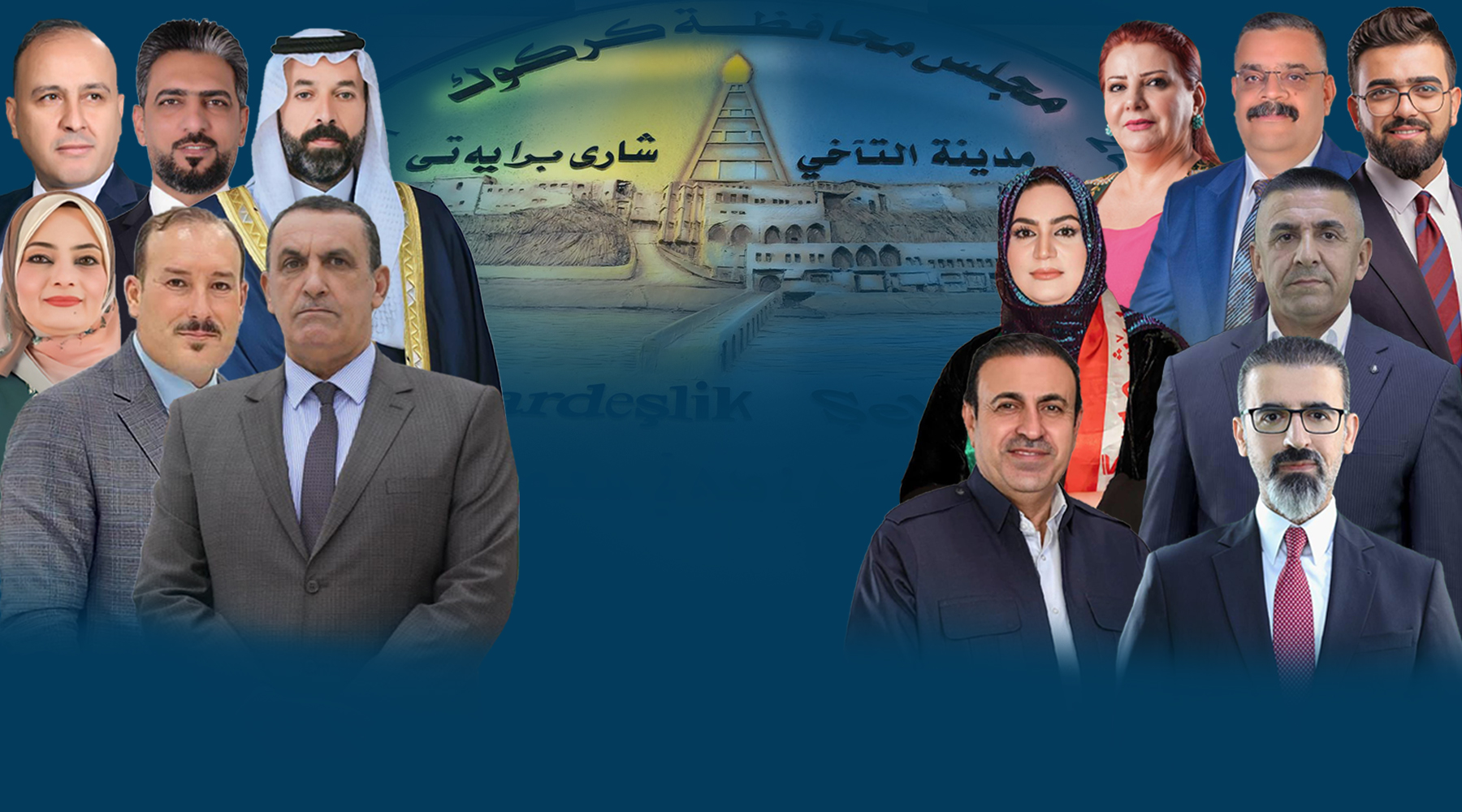The Arab bloc in the Kirkuk Provincial Council are holding onto the position of governor and refusing to relinquish it a day after that representatives of the Kurdish political parties in Kirkuk stated in a press conference the local administration to meet and appoint a Kurd as governor for the oil-rich, multiethnic province of Kirkuk.
The Arab bloc's message was conveyed via a video message on July 22, showing the six members from the Arab Alliance, Qiyada (Leadership), and Ouruba (Arabism) blocs.
“We declare our adherence to the position of governor for the Arab component. We consider ourselves the legitimate representatives and are prepared to negotiate with the honorable components in Kirkuk on this basis, as we are the largest bloc previously announced,” the speaker says in the video.
The Arab group claimed in their statement that the Kirkuk Governorate security and stability and witnessed a boom in reconstruction and construction when the Arab component took over the administration of the governorate in 2017, “so we insist on assuming the position of governor.”
The confirmation came a day after a meeting attended by most of the Kurdish parties in Kirkuk, including the Patriotic Union of Kurdistan PUK and the Kurdistan Democratic Party KDP, the two key Kurdish parties leading the Erbil-based Kurdistan Regional Government KRG, which together hold seven seats in the provincial council. They stressed in a press conference that "the position of governor belongs to the Kurds."
Out of 15 Iraqi governorates, the local government was formed in 13 governorates, while the Kirkuk and Diyala councils failed to form the local government due to disagreements between the blocs and a lack of agreement on the distribution of senior positions. The main dispute in Kirkuk concerns the position of governor, which was in the hands of the Kurds from 2005 until October 2017.
The position of governor of Kirkuk was held by the Kurds from late 2003 until October 2017, and has been held by Arabs through since then following the events of October 2017 when the Iraqi army took over Kirkuk and the disputed territories and ousted the Kurdish Peshmarga (Fighter) and Asayish (Security).
The Kurdish parties called on the winning blocs in the provincial council elections to form the local government as soon as possible, in a statement following the meeting held at the headquarters of the Justice Group in Kurdistan on July 21, 2024.
The first meeting of the elected Kirkuk Provincial Council was held on July 11, nearly seven months after the elections took place. According to the law, the council blocs have 30 days to decide on the positions of the council president, the governor, and their deputies.
The northern, oil-rich city of Kirkuk, is home to about 1.77 million Kurds, Turkmen, and Arabs. Located 238 kilometers north of Baghdad, Kirkuk is an ethnically mixed province and has long been at the center of disputes between the federal government in Baghdad and the Kurdistan Regional Government KRG.
The highest legislative and supervisory authority within the boundaries of the local administration shall be with the Council, which has the right to issue internal laws and instructions for managing the affairs of the province, formulate the general policy, discuss and approve the local budget and project plans.
This issue arises as the blocs have not reached an agreement on the distribution of positions. In addition to the Arab and Kurdish components, the Turkmen component is demanding that positions be rotated among the three main components in the province.
The Kirkuk Provincial Council consists of 16 seats: seven seats for the Kurds (five seats for the Patriotic Union of Kurdistan PUK and two for the Kurdistan Democratic Party KDP), six seats for the Arab component (the Arab Alliance in Kirkuk has three seats, the Leadership has two seats, and the Arabism Alliance has one seat), two seats for the Turkmen, and a quota seat for Christians.





